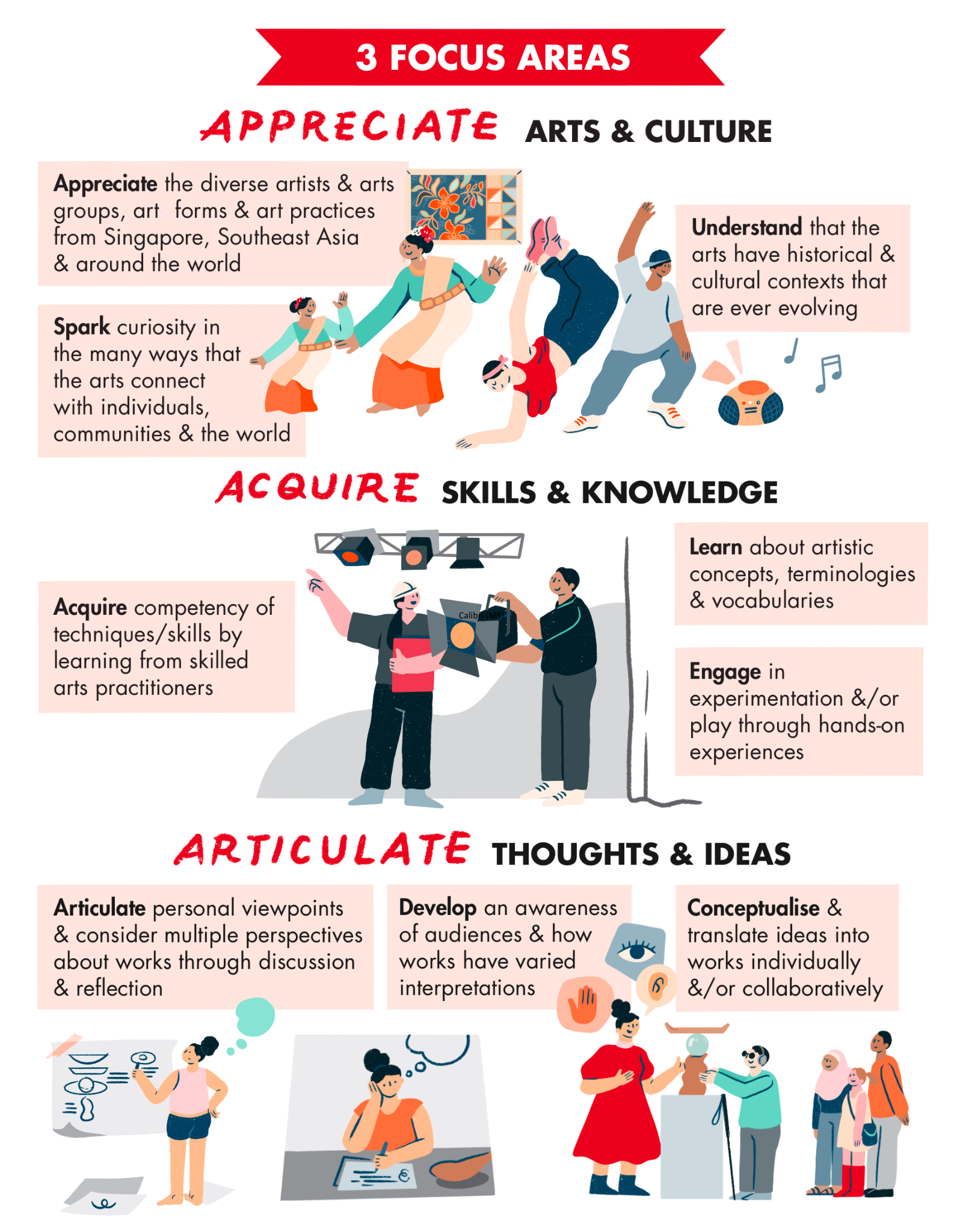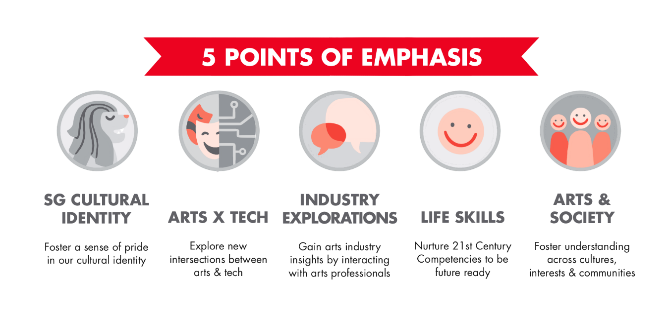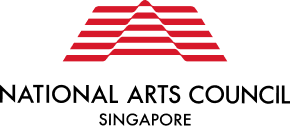National Arts Council - Arts Education Programme
Arts educators are key partners of the National Arts Council-Arts Education Programme (NAC-AEP) that provides all students with access to quality arts education programmes. Schools can utilise the Tote Board Arts Grant to subsidise purchases of any programmes listed in the NAC-AEP Directory, Public Arts Programmes as well as the Artist-in-School Scheme (AISS). Click here to access the NAC-AEP e-service.
Open Call for the 2026-2028 NAC-AEP Directory
The open call for the NAC-AEP 2026 cycle will be from 21 April 2025 to 23 May 2025. Interested applicants, please take your time to understand the NAC Arts Education Framework, assessment criteria and other information related to the open call.
Key Dates | Details |
April to May 2025 | 2026 Cycle Application Window
|
June to August 2025 | Application Assessment Period
|
September to November 2025 | Notification of Application Results and Registration of Programme Instructors Providers are responsible for engaging qualified arts instructors who meet the instructor’s credentials (outlined in the assessment criteria) required to deliver the approved programme to schools. Providers with approved programmes will need to inform the instructors they are working with to register on the NAC-AEP portal and submit their CVs for NAC’s assessment*. *Providers can subsequently tag the relevant approved instructors to their approved programmes. Approved programmes will not be published on the directory if instructor tagging is not completed. |
December 2025 | Publication of 2026-2028 Directory
|
Key Features of the NAC-AEP 2026 Cycle
The NAC-AEP 2026 Cycle will focus on providing quality programmes guided by the NAC Arts Education Framework and informed by MOE curriculum goals and holistic development outcomes as well as provide greater programme customisation that would cater to the diverse interests and needs of students.


Arts educators planning to submit NAC-AEP for the 2026 cycle should familiarise themselves with the Framework to guide intentional design and delivery of arts programmes, define learning outcomes and scope key concepts and/or skills for lesson plans. For more information about NAC Arts Education Framework, please read the NAC AEP 2026 - Programme Design Guide.
Programme design for NAC-AEP 2026 Cycle should also foreground active learning where students are engaged in hands-on, hearts-on and/or minds-on arts learning experiences facilitated by the arts educators. Given the increasingly diverse needs and interests of students, arts educators should also be aware of students’ readiness and their learning profiles and be prepared with differentiated activities and resources so that all students can maximise their arts learning experience.
Wider Range of Arts Learning Experiences
To cater to the wide range of learning modes and student profiles, the scheme will support a variety of programme formats (physical, digital and blended) and programmes types (performance, excursion, talk and workshop).
More Opportunities for Customisation
To foster closer collaboration with teachers, Programme Providers can offer optional add-on components to extend students’ engagement and learning in/ through the arts.
Priority Areas
Preschool Education
Arts education in the early years plays a fundamental role in children's holistic development and creative expression. With the update of MOE’s Nurturing Early Learners (NEL) Framework in 2022 and the rollout of ECDA's Early Years Development Framework (EYDF) in 2023, there is renewed emphasis on arts education in the preschool sector.
Early exposure to the arts nurtures children's positive orientation towards artistic expression and contributes significantly to their overall development, particularly in areas of communication skills and social-emotional competencies. Through intentionally designed programmes, young children develop fundamental capabilities that serve as building blocks for their future learning and appreciation of the arts.
MCCY’s 2025 Committee of Supply announced a commitment to scale up NAC-AEP to all government-supported preschools so as to widen access to quality arts experiences to young learners, fostering creativity and expression through the arts from an early age.
Special Education
Arts education plays a critical role in enabling students with Special Educational Needs (SEN) to acquire skills in communication, creativity, critical thinking, and collaboration. Through engagement in the arts, students with SEN learn how to express their individuality, connect with their peers in meaningful ways, and develop self-confidence.
The roll out of the MOE Visual Arts Teaching and Learning Syllabus for Special Education (SPED) schools from 2021underscores how arts programmes intentionally designed for students with special educational needs can support students’ holistic development.
Engagement of Schools
Beyond NAC’s outreach efforts with MOE and schools, programme providers are required to actively engage schools to raise awareness of their programmes and/or to share more information about their mission and art form. Providers are required to provide more information to NAC as part of their application.
NAC-AEP 2026-2028 Cycle Reference Documents
Arts Instructors
Programme providers are responsible for engaging qualified arts instructors with the required credentials (as outlined in the assessment criteria) to deliver the approved programme to schools. All artists and arts instructors should fulfil the necessary requirements, based on the mode of programme proposed in the application.
How Can I Be Exempted?
Artists may be exempted from the pedagogical courses listed in the assessment criteria if they have the following:
- Diploma / Degree / Masters / PhD in Education or teaching;
- Formal Arts-based training directly relevant to teaching and learning (e.g. LASALLE MA in Arts Pedagogy and Practice, Trinity Guildhall Teaching Diploma etc).
- Extensive track record in teaching their specialised field of art (min. 10 years of teaching experience in local schools)
The User Guide, Sample Application Form and Potential Instructor(s) List for the NAC-AEP 2026-2028 Cycle Applications will be updated subsequently.


